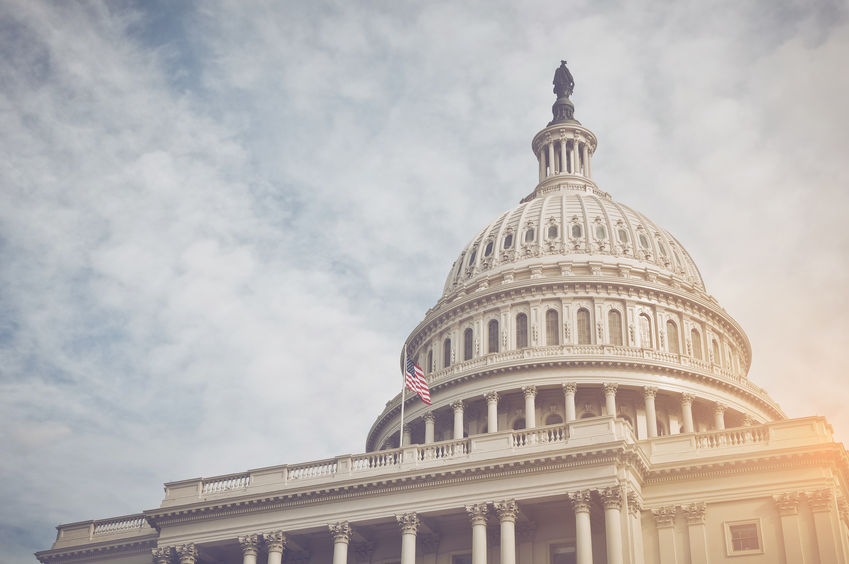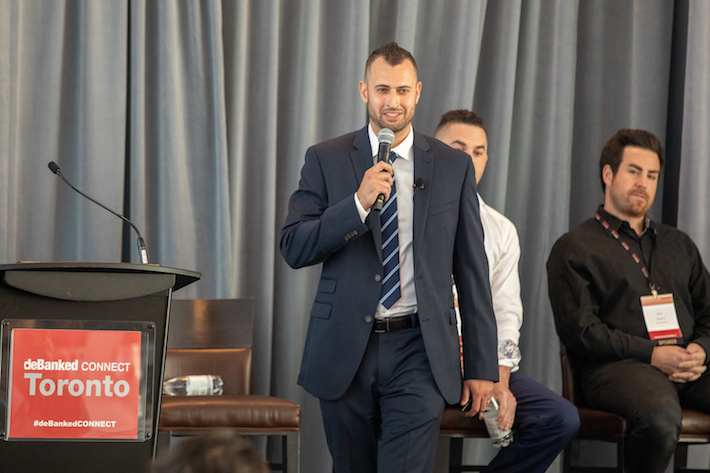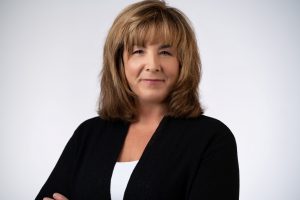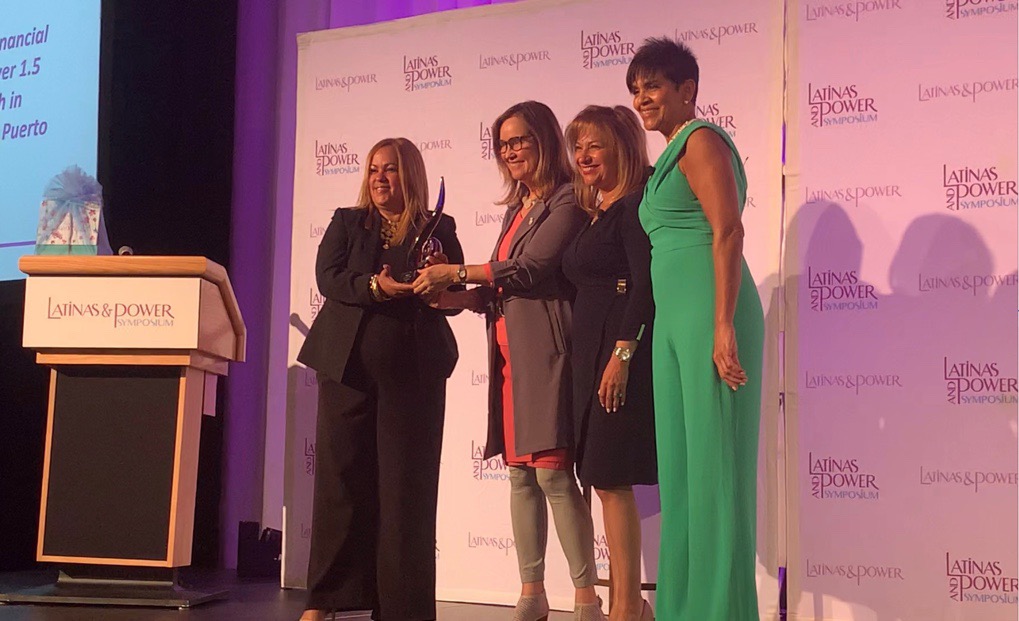Kevin Travers was a Reporter at deBanked.
Articles by Kevin Travers
Nav CEO Talks About Platform Enhancements
September 28, 2020 “Our news is really about improving and enhancing our platform to use real-time business data to uncover and align qualifications for small business owners to the best financing options available to them,” said Nav CEO Greg Ott about a recent announcement.
“Our news is really about improving and enhancing our platform to use real-time business data to uncover and align qualifications for small business owners to the best financing options available to them,” said Nav CEO Greg Ott about a recent announcement.
Nav is a small business information service that connects borrowers to lenders across the entire finance industry, from SBA loans, major credit cards, to nonbank lenders, and more. This new enhancement streamlines the finance process for both sides of the transaction, Ott explained.
“Historically, the model is inverted disproportionately against the small business owner, in that they can’t see what they’re qualified for until after they apply,” Ott said. “By using real-time business analysis and dynamic financing profiles, Nav is the only place that can show them what they can qualify for before they apply.”
Nav is also adding a new service team that connects to small businesses through the digital platform, offering a more personalized experience; someone will be on the line to help borrowers find their way. The platform uses cash flow, revenue, credit, and behavioral data to match SMBs with loan offers.
Nav is expanding its service because Ott said this year, many businesses could not find financing at all. Nav began helping customers find lenders for PPP loans, facilitating 70k applications in all and built an online community of 18k businesses going through the process this year alone.
Ott said it became clear during the rounds of PPP and government stimulus that banks gave preferential treatment to some of their customers and left out small businesses.
“Many banking options aren’t available to the vast majority of small businesses,” Ott said. “The traditional financial system is not always available or not the best option for a small business owner. Small business owners know this in spades, It’s just now that in the growth of this fintech ecosystem that it’s becoming clear how big that addressable market is.”
Mnuchin and Powell Defend Pandemic Aid Programs, Say Congress Needs to Agree Before They Can Give out More Money
September 23, 2020 Yesterday, Treasury Secretary Steven Mnuchin and Federal Reserve chair Jerome Powell testified on the COVID response before the House Financial Services Committee.
Yesterday, Treasury Secretary Steven Mnuchin and Federal Reserve chair Jerome Powell testified on the COVID response before the House Financial Services Committee.
They championed the largest stimulus package in the Nations’s history and said the economy was recovering well.
Mnuchin advocated for bipartisan support of targeted forgivable loans- a second PPP loan for businesses still losing revenue, funded by either a new stimulus, reusing the $130 billion still leftover, or reallocating $200 billion from the Main Street Lending program. Of course, all of that is up to Congress, he said.
“I think there’s broad bipartisan support for extending the PPP in businesses that have had revenue drops for a second check,” Mnuchin said.
Chair of the committee, Maxine Waters D-CA, led the questioning. She asked for removing the loan minimum, and noting the slow economic activity; she said 32% of renters could not pay their bills at the beginning of Sept. Other charges, like the possibility of a second wave, were leveled toward the executives.
In response to questions to the Main Street Lending Program (MSLP,) they argued the program was not designed as a stimulus but as a “backstop” and liquidity to already present loan markets.
This might explain why last month, the Congressional Oversite Committee investigated the MSLP because of its low adoption rate and found many problems.
To date, less than $2 billion of loans are “in the pipeline” out of the $600 billion allocated in April. The program is designed with non-forgivable loans supplied by 509 traditional FDIC insured lenders, at a minimum of $250,000. The majority of these lenders are not accepting new customers, unlike PPP loans facilitated by more than 5,000 lenders to mostly new clients- including fintech firms.
The Fed already lowered the minimum down from $1 million, but after questioning whether it could be lowered to under $100,000, Powell said there was very little demand for loans under $100,000. In response to Representative Andy Barr R-KY, about how the program could be improved to service smaller businesses, Powell responded that the program wasn’t created for that.
“The limit now is $250,000, and we have very little demand below a million, as I told the chair a while back,” Powell said. “We’re not seeing demand for very small loans. And that’s really because the nature of the facility and the things you’ve got to do to qualify, it tends to be larger sized businesses.”
The SBA reported findings from the third round of PPP on Aug 10th. The organization found that loans under $50k were the largest category issued. 68% of the 5,212,128 PPP loans were under $50k, and 87% were under $250k.
As Fintech Accelerates in Canada, Smarter Loans Expands
September 22, 2020 Smarter Loans, a Canadian loan comparison site, announced they are expanding their services to new categories- including “Everyday Banking, Insurance, Investing Money Transfers, and Debt relief.”
Smarter Loans, a Canadian loan comparison site, announced they are expanding their services to new categories- including “Everyday Banking, Insurance, Investing Money Transfers, and Debt relief.”
The additions are part of the Smarter Loans’ mission to become the go-to place for Canada’s online financial options. Founders Vlad Sherbatov and Rafael Rositsan founded the company to bring together information on the top financial companies all in one place. They started with information on personal and business financing but have expanded to auto loans, mortgages, equipment financing, and information on all kinds of financial products.
“We wanted to bring additional financial services and products that people can now access online,” Vlad Sherbatov, the president said. “And to do that, we partnered with some of the leading companies that offer these financial services.”

The addition is the latest resource for their 40,000 monthly user base, who access a database of top banks, credit unions, and innovative fintech leaders. Rafael Rositsan, the CEO, said as a trusted industry voice, the firm is adding this new info to update consumers on new opportunities firms provide.
“There’s a rise of companies that are now offering innovative products online,” Rositsan said. “Canadians might not be aware of some of the services that are out there.”
Sherbatov said that Canadians have been gravitating toward conducting business on the go at an accelerated rate this year. The firm listened to the customer base and learned they’re not going online for just financing.
“Entrepreneurs are running their businesses online,” Sherbatov said. “People that used to just shop for household items online are now looking for ways to handle investments and everyday financial errands because the old way of doing things is not available.”
He said that many areas of the financial space have evolved. Customers can obtain life insurance, get a line of credit, and a bank account funded in less than 24 hours, all from the comfort of their home.
“This move is to both bring more services relevant to our existing user base that use Smarter Loans,” Sherbatov said. “But also for all Canadians that are looking for these types of products. We want Smarter Loans to be the go-to place for them to learn about [these offerings], and to learn about the companies behind these products.”
OLA CEO Mary Jackson: Colorado True Lender Bad for Borrowers
September 21, 2020 Last month, the Colorado Attorney General’s office announced a settlement with Avant and Marlette Funding, setting a precedent for how “true lender” cases will be handled. The fintech lenders and their partners are free to lend in the state, subject to a lot of restrictions, as long as they stick below the 36% APR level.
Last month, the Colorado Attorney General’s office announced a settlement with Avant and Marlette Funding, setting a precedent for how “true lender” cases will be handled. The fintech lenders and their partners are free to lend in the state, subject to a lot of restrictions, as long as they stick below the 36% APR level.
Some touted the decision as a safeguard for fintech bank partnerships. Still, many, like those represented in the Online Lenders Alliance (OLA)- saw misplaced regulation that harms borrowers more than it helps.
Mary Jackson, CEO of OLA, said that while well-meaning, the 36% rule arbitrarily limits the ability for non-prime credit customers to get a loan at all. The limit draws an arbitrary line in the sand, based on an outdated centuries-old lending system, and doesn’t describe loans that last shorter than a year very well, Jackson said.
“What it did was drive out all the lenders,” Jackson said. “Non-prime consumers have fewer choices. They have to go and be subject to fraud or more unscrupulous lenders, or they have to go back to overdraft as another option.”
Jackson represents a group of lenders that offer online services, which regularly partner with banks to provide loans nationwide at higher APR rates than some states allow. Jackson said these are not fintech “rent-a-bank” cases to skirt state regulations, but natural partnerships that enable larger institutions to gain the tech and talent of leading tech companies to reach a greater customer base.
“Big banks cannot keep up with the technology that fintech providers have developed,” Jackson said. “A key US bank has a lot of data scientists that they employ, but if you’re a regional or smaller bank, you don’t have that capability: it’s nearly impossible to drive an IT team as a banker.”

Jackson said that when her firm Cash America, that offered storefront cash advances, was bought by online lender CashNetUSA, she saw the differences between in-person transactions and the IT teams necessary for online lending. “It’s like two different worlds, two different ways of looking at something.”
“Our lenders are sophisticated like Enova, Elevate, CURO, Access Financial,” Jackson said. “These are companies that employ hundreds of data scientists that compete for jobs with Google in Chicago and a small regional bank can’t keep up.”
Fintech talent is helping to reach the 42% of Americans that have non-prime credit scores- FICO scores below 680, according to the Domestic Policy Caucus.
Jackson said these customers, many of whom can pay for loans, have almost no options. Jackson sees many of her partner companies offering a “pathway to prime” service, empowering customers to rehabilitate their credit.
“Most of these people are non-banking customers, these folks have damaged or thin file credit,” Jackson said. “Most banks don’t service that customer, except for overdraft- a 35$ fee for lack of money in their account- I think bankers want to be able to offer longer-term installment loans.”
Jackson said research backs up her claims, pointing to a 2018 US Treasury report that discussed how banks would have to rely on fintech partnerships to innovate and drive product change. That’s what is finally happening, Jackson said.
She also pointed to a 2017 study into the effects of the 2006 Military Lending Act. The act intended to protect military families from lending products with an APR above 36%. The study out of West Point found that the limit only hurt military members, some of which lost their security clearances when their credit fell too low.
“We find virtually no statistically or economically significant evidence of any adverse effects of payday lending access on credit and labor outcomes. In a few cases, we find suggestive evidence of the positive impacts of access. For example, our second survey suggests that a 1 standard deviation increase in the fraction of time spent in a payday loan access state decreases the probability of being involuntarily separated from the Army by 10%”
Not only was there no harm done, but the paper argues on behalf of payday lending as a healthy way to maintain the credit necessary to keep a military job.
She sees similarities in the legal fight over the creation of interstate credit card laws in the 50s and 60s, saying it used to be the case that consumers had to use a texas-based or California based card. The country had to decide how interstate credit worked then, and with the induction of new technology to loans today, the same question is being asked.
The majority of Jackson’s clients offer products above the 36% limit, in the 100 to 175% APR range. She said that looks high, but consumers are looking at it on a monthly basis, and most of them pay it off early.
“These fintech partnerships allow the bank to offer one rate to everybody across the United States,” Jackson said. “We feel that really adds more democracy to credit, making sure that those who’ve been left out of banking have a shot at it.”
Stavvy Co-Founder Kosta Ligris on Navigating Real Estate Loans in a Contact-less world
September 18, 2020 How does real estate loan signing work in a contactless world? One company offers a solution.
How does real estate loan signing work in a contactless world? One company offers a solution.
Stavvy, a platform that empowers businesses and lenders to close real estate loans digitally, has seen a dramatic change in their business landscape since the launch of their E-signing platform in March.
“Over the course of literally a couple of weeks, [states] realized that they had to empower people to be able to do business as usual, despite what was going on,” Co-Founder Kosta Ligris said. “We were able to put all the necessary tools in one platform to empower these title companies, law firms, notaries to have identity solutions when we went live in March.”
Right when the platform came live, contactless signing became a necessity. Kosta Ligris, a co-founder of Stavvy, said his team worked hard to include emergency digital notarization options in states that had not allowed it yet before. The market went from about 20 states with legalized digital signing to 48 that had legalized or created a temporary law.
Stavvy also reached out to engineers and employees who were losing their jobs during the first wave and picked up new hires while many firms were downsizing.
“The pandemic is a once in a lifecycle opportunity,” Kosta said. “I hope that we don’t see anything that resembles COVID again. But this opportunity has given us the chance to get in front of people that we otherwise would not have been able to hire.”
Unlike competitors, Stavvy does not get involved in signing or notarizing themselves, but instead offer a digital platform for both lenders, signers, and state compliance checking. The platform is somewhat like the Uber app Ligris said- they don’t bring a car to you, but they give you a digital way to connect to people who can pick you up.
In many states, especially in New York and New Jersey, complete digital signing is still not allowed. Instead, Stavvy encrypts film of the “wet signing” -ink pen on a document- and sends the encrypted data and other identification guarantees in a live “Zoom-like experience” to the county registry.
 Ligris said Stavvy is very passionate about empowering both lenders and signers. As an MIT entrepreneurship resident who looks at student companies and ideas every year, he knows about barriers to entry. He said one such barrier to digitalized innovation is a simple fear of change.
Ligris said Stavvy is very passionate about empowering both lenders and signers. As an MIT entrepreneurship resident who looks at student companies and ideas every year, he knows about barriers to entry. He said one such barrier to digitalized innovation is a simple fear of change.
“Change in and of itself is always frustrating and scary, but it doesn’t necessarily mean that it’s bad,” Ligris said. “In so many industries where people regard technology, they look at it as this is the next thing that’s going to take my job away from me.”
That’s the concept Stavvy is fighting- that digital innovation is not automating away livelihood, but further connecting people. Ligris said that the one thing technology could not replace: broker buyer relationships.
“When it comes down to making one of the largest financial decisions of their life, they want a trusted professional,” Ligris said. “If we’re going to provide the technology, we want to empower the stakeholders that know best to be more efficient and better at what they do.”
Dwolla Introduces New Push-to-debit Platform
September 17, 2020 Dwolla, an online payments platform, released a Push-to-Debit functionality that they said will allow faster payouts to a debit card and give clients additional flexibility.
Dwolla, an online payments platform, released a Push-to-Debit functionality that they said will allow faster payouts to a debit card and give clients additional flexibility.
“We have been moving money for quite some time,” VP of Product Ben Schmitt said, “In doing so, we’ve learned a lot about what our customers want.”
Founded in 2008, the Dwolla team has worked to incorporate many different ways for their users to move money. They offer same day, next day, and other payment types, but said customers were always looking for ways to transfer funds faster. Now with Press-to-Debit, Dwolla offers a way to shift funds instantaneously, a product that they say fits many use cases.
“It could be the gig economy, it could be online marketplaces, but people want to move funds faster,” Schmitt said. “And I think especially during a pandemic, getting funds quickly adds a lot of value.”
Dwolla wanted to offer the platform’s simplicity with debit speed. Schmitt said the process is PCI security compliant and nearly instantaneous, though it might take up to 30 minutes.
“The value of instant payments is in getting the funds now when you need them, but there’s an emotional response,” Schmitt said. “When you see the funds hit and they’re instant- when you push a button and show up just like that, it’s fascinating.”
It works not just for debit, but prepaid cards, meaning businesses paying employees or customers don’t need a relationship with a bank to get funds transferred.
“If you’re a gig worker and do some work during the day and finished your shift, you can use an app or website and clock out,” Schmitt said. “Then a business has a record of the work performed, and say ok, here’s the agreed-upon payment and issue that to you right away.”
Puerto Rican Businesses & People Resilient In Spite of Pandemic and Challenges, Says Alvelo
September 16, 2020 While the US economy slowly opens back up to careful in-person commerce, the territory of Puerto Rico is still facing rising case numbers- So how is business in the “Island of Enchantment?”
While the US economy slowly opens back up to careful in-person commerce, the territory of Puerto Rico is still facing rising case numbers- So how is business in the “Island of Enchantment?”
“I don’t think there’s anything that will shake the confidence of our small business owners in Puerto Rico,” said Sonia Alvelo, CEO of Latin Financial. “Businesses and the people of Puerto Rico are the most resilient I have ever known: I know that as I am one of them.”
Alvelo, a native to the island, has won awards as a top entrepreneur of the year for her business financing partnerships in the US and Puerto Rico. She said that even as the island faces its hardest challenges, the spirit of entrepreneurship remains unbroken.
Puerto Rico has been hit by irregular misfortune in the past couple of years. Destruction from Hurricane Maria and Irma damaged the 2017 infrastructure of the island immeasurably, and the response of the US government was painfully lacking. Commerce continued with caution, seeming to rebound. Then this year, earthquakes and aftershocks punctuated January and February, foreboding the coming storm.
The pandemic was slow to reach the island; Puerto Rico was the first US state/territory to impose a quarantine, banning business and all travel March 15th. The region is a territory of the United States, so it could not directly enforce control over its borders. Recently, Puerto Rico made the news with an increasing case count.
There’s also been the troublesome search for a new governor. After a mass protest, Governor Ricardo Rosselló stepped down last year. After his successor ‘appointment’ was deemed unconstitutional by the Supreme court of Puerto Rico, Wanda Vazquez, the former Secretary of Justice, took office.
In the August primary, thousands of ballots got stuck in delivery trucks that did not move, never reached polling locations. The candidates are now petitioning for a re-vote and the counting of the votes that were cast. The courts are still deciding, so even the election is facing challenges in Puerto Rico.
Besides that, the tourism industry has been devastated. Though the early shut down saved lives, the island saw an unemployment rate of up to 23% in July alone. That could be a low estimate, considering that half of the Puerto Rican workforce hold a job in the “informal economy.” The New York Times reports that the real unemployment rate in the middle of the summer could have reached close to 40%.

Even so, Alvelo conveyed the enduring willpower of the Puerto Rican people, that there was still confidence things would turn around.
Alvelo is partnered with more than 97 pharmacies in Puerto Rico as an MCA provider, as well as with gas stations and other small businesses. She said that she has been receiving calls for business financing options non-stop, on a day-to-day basis. Alvelo shared information she learned from one of her clients.
“They suffered the most at the beginning, but you know only 5-10% of pharmacies in the islands are open,” Alvelo said. “But even still, and we’re talking a hurricane, earthquakes, a pandemic, everything- I still don’t think that anything will change the confidence of business owners in PR.”
Alvelo is standing right next to Puerto Rican business owners, talking to them through their increasing needs during this time, she said. Latin Financial facilitated almost $2 million in PPP loans and $2 million in EIDL loans in the US and PR.
“That was the best experience- when they got the PPP funds,” Alvelo said. “They were crying over the phone; it was incredible.”
Brendan Lynch, Alvelo’s fiancé and business partner, said that the program had a rough rollout. It was unclear how long the Fed money would last, but PPP ended up working well for Puerto Rican businesses. He even saw BlueVine begin funding Loans in PR for the first time.
“One of our finders here in the US was approved for the program, and we were able to use their online platform,” Lynch said. “And normally they don’t really fund in Puerto Rico, but they did allow Puerto Rican businesses to apply for funding; which is great because they had the technology to make it so simple and quick.”
Lynch said Latin Financial was sure to share links to a PPP loan application with every client to make sure aid funds were as accessible as possible.
“Businesses are probably still down-scaled somewhere between 60 to 70% of their total revenue,” Lynch said. “they’re still working shorthanded with less people in the office, and regulations on how many people you can have in your business are making it harder.”
Alvelo and Lynch are no strangers to environmental forces affecting their plans- the pair were planning on getting married in PR in 2017 before the hurricanes hit.
 “We started actually looking [for a venue] again, and then COVID happened,” Alvelo said. “Clients were going to be invited and are always asking how they can help, just like when everything happened with COVID, the pharmacies all got together, and said if you need this let us know. Businesses are really working together because they know that they need each other.”
“We started actually looking [for a venue] again, and then COVID happened,” Alvelo said. “Clients were going to be invited and are always asking how they can help, just like when everything happened with COVID, the pharmacies all got together, and said if you need this let us know. Businesses are really working together because they know that they need each other.”
Maria Barzana, the owner of Farmacia Asturias, has been a longtime client of Latin Financial, one of the first dating back to 2015. Barzana went to Alvelo for help. She said the island did not feel an economic impact until this August. Businesses, including most medical offices in the country, have been closed for the past five months. Pharmacies are finally feeling it.
“At the beginning of COVID-19, we were able to manage the economic factor by invoicing refills of prescriptions and the sale of basic necessities related to COVID,” Barzana said. “Due to social distancing, the flow of clients/patients has decreased, concentrating on items necessary to combat COVID-19 and maintenance medications.”
Latin Financial is almost back to regular funding after rushing to help complete PPP and EIDL stimulus loans. Sonia Alvelo will be a panelist speaker this Sept. 24, for the annual Latinas & Power Symposium.
Upstart Welcomes Policy Head Nat Hoopes
September 15, 2020 Upstart, an AI lending platform, welcomed longtime industry advocate Nat Hoopes to the team this week, to lead as Head of Government Policy and Regulatory affairs. Hoopes previously served as the Marketplace Lending Association executive director (MLA), where he grew the trade group and advocated on behalf of its members.
Upstart, an AI lending platform, welcomed longtime industry advocate Nat Hoopes to the team this week, to lead as Head of Government Policy and Regulatory affairs. Hoopes previously served as the Marketplace Lending Association executive director (MLA), where he grew the trade group and advocated on behalf of its members.
“My hope is to bring the energy that I did in growing the organization [MLA] and also just in tackling a lot of different workstreams to Upstart,” Hoopes said. “But also, deepen their ties with the DC policy community.”
Hoopes is excited to join the Upstart team and advocate for the company to state and federal legislators. Hoopes intends to address the development of two main issues as he enters his new office: facilitating better credit reporting with the help of AI, and using better credit to bring financing options to disenfranchised minority communities.
Upstart uses non-traditional data like a college education, job history, and residency to evaluate borrowers for personal loans. The company recently introduced an AI-powered Credit Decision API to deliver instant credit decisions. Upstart added auto loans to the platform in June, so the new API works with personal, student, and auto loans.
Hoopes said he and Upstart shared a similar motivation: to provide credit to people and improve financial futures, especially to people unfairly blocked from receiving credit.
“I think because of the structural inequality that we have in our society, a lot of minority groups get really left behind and stuck in a low credit score environment,” Hoopes said. “By using more data, and using it in new ways with artificial intelligence we can really level the playing field.”
Hoopes said that he has already seen Federal regulators in the FDIC and the OCC, and the CFPB working on using AI learning in credit underwriting. He said the Fed is planning out how to help banks adopt more of these models to approve more people.
“I think that’s a key initiative,” Hoopes said. “A key area where I’ll be working for Upstart: Engaging with regulators on how to help banks get more comfortable in serving more customers,”
While advocating for banks to use the credit capabilities of partners like Upstart, Hoopes said he would be devoted to ensuring decisions are made with equality and inclusion in mind. Hoopes will stay on as a member of the MLA board, and working in concert with his responsibilities advocating at Upstart.
“At MLA, I helped develop the diversity and inclusion strategies for our part of the fintech industry,” Hoopes said. “I’ll remain active on those issues at Upstart both collectively with other members of the industry as a member of the MLA.”
Hoopes referred to the Diversity and Inclusion strategy released by MLA last month. Board members signed off on the paper, written with the help of the National Urban Leauge. League president and CEO Marc Morial and Representative Gregory Meeks (D-NY) to create a vision of an inclusive fintech industry.
Hoopes addressed what he said was the failure of the American credit scoring system. For instance, according to Upstart’s study in 2019, 80% of Americans have never defaulted, yet only half have a prime credit score. It’s a problem he says disproportionately affects minority borrowers.
According to a Federal Reserve study, more than three times as many Black consumers (53%) and nearly two times as many Hispanic consumers (30%) as White consumers (16%) are in the lowest percentiles of credit scores.
Hoopes said Upstart does not collect racial data from applicants but cites a CFPB test that found Upstart’s platform increased access to credit across race and ethnicity by 23-29% while decreasing annual interest rates by 15%-17%.






























